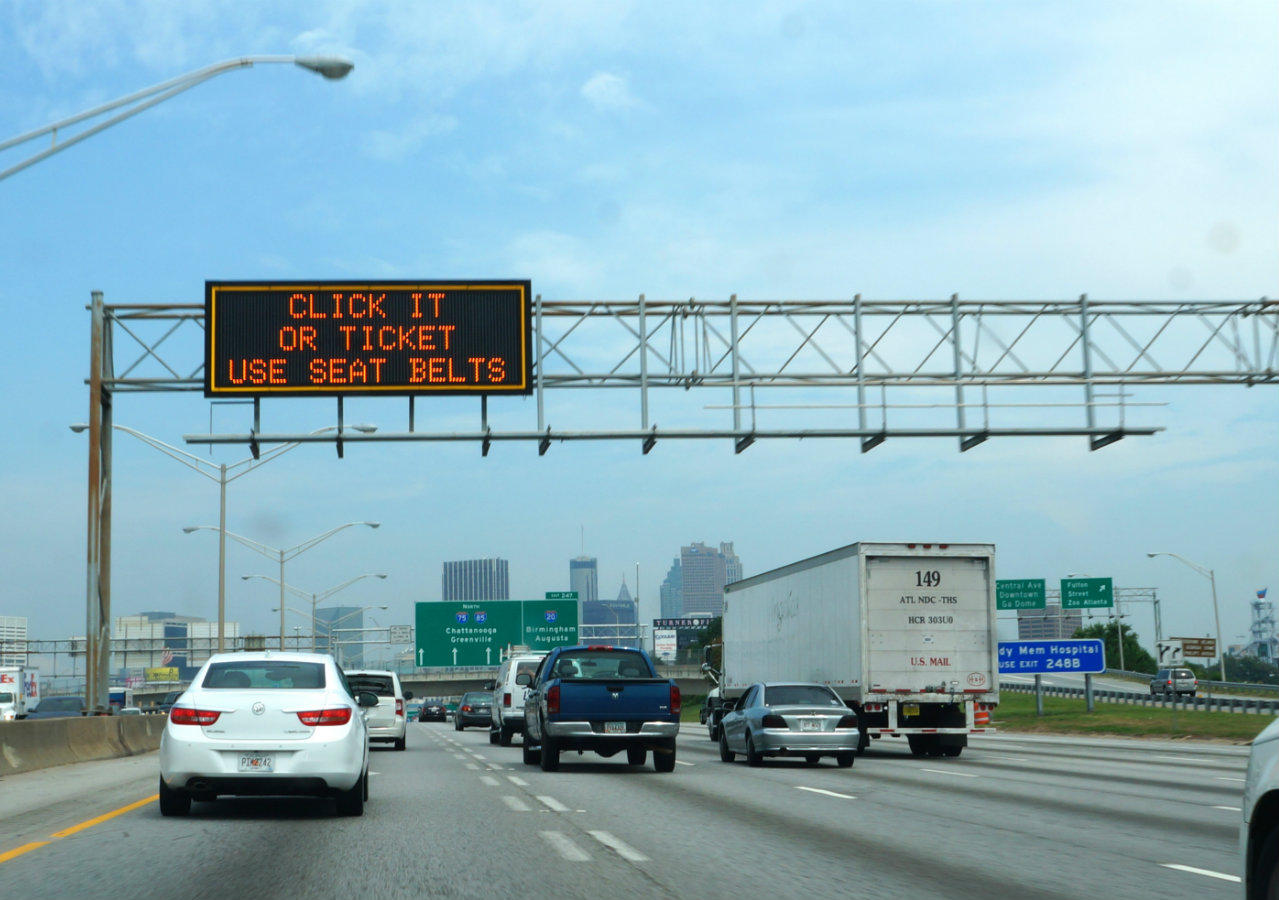How Georgia’s Traffic Tickets Stack Up Against Other States

Jim Burress / WABE File
An audio version of this story
According to a new five-year study of criminal justice systems in nine states, drivers in Georgia pay much more in traffic fines and fees.
University of Georgia sociology professor Sarah Shannon and graduate student Brittany Martin worked on the analysis of monetary sanctions by the criminal justice system in Georgia.
A ticket for driving with a suspended license in Georgia costs anywhere from $500 to $1,000.
However, if motorists fail to pay, the surcharge could be double the original ticket, up to $800. In Minnesota, the surcharge is a flat $75.
Ferguson Effect
In some municipalities, people are arrested for failing to pay fines. In St. Louis County Mo.,, where the city of Ferguson is located, a report found that half of the courts illegally charged high fines on nonviolent offenses and arrested those who didn’t pay.
“Recent events in Ferguson, Missouri have brought these issues to the national attention, but we really don’t know the full extent of how these systems of sanctions work throughout the United States,” Shannon said. “What we’re trying to do with the study is to shed more light on how it’s affecting individuals’ lives and also how monetary sanctions are connected to the rest of the criminal justice system.”
Shannon said more research is being done into where the money is going and how much state and local governments depend on these fines for revenues.
In Fulton County, for example, fines make up about three percent of municipal revenues. In the city of Norcross, it’s more than 22 percent. In Register, near Statesboro in southeast Georgia, more than 85 percent of the small town’s revenues (population of less than 200) come from these fines.
The next phase of the study will also present findings on the impact traffic fines have had on low-income individuals.
Probation Supervision
In Georgia, many traffic offenses are considered criminal and when traffic fines go unpaid. Some people can fall under the supervision of parole officers if they’re ordered to serve time on misdemeanor probation.
Local governments are allowed by Georgia law to contract with private probation companies to supervise misdemeanor probationers. There are more than 30 private probation companies operating in the state.
“So far in our interviews, people who owe this kind of debt are experiencing a great deal of stress around owing this money and particularly when they’re on probation to meet the expectations for their supervision,” Shannon said. “It can actually in some ways undermine peoples’ abilities to meet those obligations. They experience this as an additional stressor in their lives that are already in many cases quite stretched for resources in every way.”
The rate of supervision in Georgia is much higher than other states, where more than six percent of adults are under the surveillance of probation and parole agencies. Shannon said that’s partly because of the prevalence of private probation companies in Georgia.
“The law allows for those companies to collect fees for that supervision on top of whatever it is that the person may owe,” Shannon said. “So it’s not just about the state benefiting, it’s also about private companies benefiting and making money off of people who owe money to the criminal justice system.”
9(MDAxODM0MDY4MDEyMTY4NDA3MzI3YjkzMw004))








